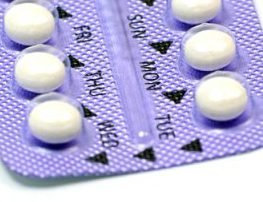- You have no items in your shopping cart
- Subtotal: AUD$0.00
Can the pill regulate your periods?
So often I hear women say that their doctor put them on the oral contraceptive pill to regulate their periods. Reasons for this could be painful periods, heavy periods or irregular periods, maybe due to PCOS or maybe for unknown reasons. The common belief is that they are experiencing a regular period, usually lighter, maybe less painful.
How does this work? How can the pill regulate your period to a “normal” cycle? What most women don’t understand is that the pill shuts down their reproductive cycle, it shuts down their hormones, and the synthetic hormones in the pill take over. The body’s own hormones are completely suppressed much like menopause. What this means is, that you are actually not getting a period while taking the oral contraceptive pill. Pill withdrawal bleeds are not periods. These bleeds are pharmaceutically induced bleeds due to the withdrawal of hormones. They are organised to be every 28 days, but they could be every 50 days. Whenever you stop taking the pill, the body experiences a withdrawal from the synthetic hormones, and you have a “period”.
The pill does not regulate hormones, it switches them off entirely. Once women are trying to conceive, they may struggle. Often previous use of the oral contraceptive pill has a big impact on their fertility. The body needs to “learn” again to produce the right hormones in the right balance without the help of synthetic hormones.
It is not possible for the oral contraceptive pill to regulate your hormones. There is also some recent evidence to suggest hormonal contraception may increase insulin resistance, abnormal glucose tolerance and cholesterol levels.
Additionally, the oral contraceptive pill may cause vitamin and mineral deficiencies. A report from the World Health Organisation (WHO) points out that the following nutrients are being depleted by the pill: folic acid, B2, B6, B12, Vitamin C and E and the minerals magnesium, selenium and zinc.
The Hormones & Glands Testing Kit includes hormones and glands related to the female cycle.

